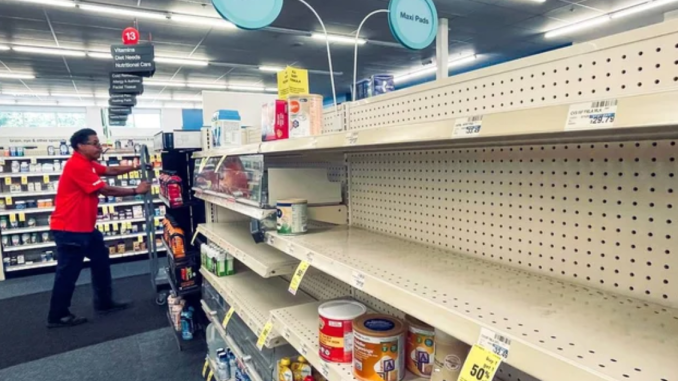
Four babies have been treated at the Medical University of South Carolina due to the shortage of baby formula.
Heather M. Woolwine, spokesperson for the Charleston hospital, said HIPPA rules restrict what information she can release, but generally “pediatric dieticians are working with the individual child’s care team to find a formula or nutrition that works for him or her based on allergy and caloric needs.”
The issues being treated include homemade formula causing problems and babies not being tolerant of new formulas as parents are trying to substitute.
“Many of the children we treat have complex health conditions including nutrition so it’s hard to nail down an exact number. But we can safely say at least four have been related to the formula shortage,” she said.
Hospitals in Memphis and metro Atlanta also reported hospitalizations babies due to the formula shortage.
Earlier, MUSC issued a news release about the baby formula shortage in which Dr. Elizabeth Mack said babies without medical conditions that restrict the type of formula they need can shift to different types or brands.
Dietitian Kristi Fogg said standard cow’s milk-based formulas are interchangeable.
Most formulas take cow’s milk and modify it.
“Cow’s milk is a lot higher in fat and protein and by itself, it doesn’t have enough iron and vitamin C in it for a baby,” she said in the release.
The two health providers said they strongly advise against using homemade formula recipes that are circulating online.
* Article from: The State
